Western Cape attacks homeschoolers
Homeschooling parents were recently shocked when the Western Cape Education Department (WCED) not once, but twice attempted to curb the liberty of parents to choose what is in the best interest of their children.
On 11 February the WCED issued Draft 8 of a proposed policy on home education that unlawfully requires parents to use the state curriculum, register before 30 September of the year before they can start homeschooling, prohibiting homelearners to come together in groups and a multitude other unreasonable requirements. In protest against this policy, many parents wrote letters to their DA councillors and the Pestalozzi Trust wrote a letter to the Western Cape minister of Education, Mr. Donald Grant. On 14 Feb., the proposed policy was withdrawn.
However, on the 4th of March the WCED published a notice in Western Cape newspapers prescribing similar unlawful requirements.
This double attack has made the homeschooling community aware of the fact that they must always be alert and vigilant in order to protect their liberty. Otherwise it could easily happen that home education is transformed into a public-school-at-home model that will produce the same dismal results as public schools.
Thomas Charlton (1809): "The price of liberty is eternal vigilance."
The attacks by the WCED
Parents choose home education because they know their children better than anyone else and know what kind of education is best for each unique child. This right of parents to choose the kind of education for their children is acknowledged by international, national and provincial legislation. Art. 26 of the Universal Declaration of Human rights states that : “Parents have a prior right to choose the kind of education that shall be given to their children.” The South African constitution states that : “A child’s best interests are of paramount importance in every matter concerning the child.” The Freedom Charter of the ANC states : “The law shall guarantee to all their right to speak, to organise, to meet together, to publish, to preach, to worship and to educate their children;” Even art. 81 of the constitution of the Western Cape states that the government should “… actively promote and maintain the welfare of the people of the Western Cape, including policies aimed at achieving … an environment in which all children … receive basic education under a system of their parents’ choice”
While the Western Cape constitution acknowledges parental choice, the WCED publishes a notice that requires that the curriculum used by homeschoolers must cover the content and skills of the NCS. Since the NCS is so detailed and prescriptive, this requirement will mean that the curriculum choice of parents will be reduced to less than a handful South African curriculum suppliers that have based their curriculum on the NCS in the most minute detail. This will severely limit the parental freedom to choose a curriculum that is in the best interest of their child.
The notice also requires that parents register for home education before 30 September, in the year before starting. For example, if parents decide in January that homeschooling is in the interest of their child because of bullying at school, this requirement would mean that the child must be bullied for the rest of the year, so that the parents can request permission before 30 September to homeschool the following year. Such a requirement has nothing to do with the interests of the child, but only serves bureaucratic convenience, and could amount to legalised child abuse.
While it is generally acknowledged that the South African public school system is failing, home education is a form of education with a track record of success that has grown significantly over the last 20 years. Instead of focusing on the problems in public schools, the WCED issues a notice that attempts to force a curriculum on homeschoolers that will transform home education into public-schools-at-home, under full control of the WCED. Instead of promoting the welfare of children, the WCED issues a notice prescribing that abused children should remain in public schools until it is convenient for officials to allow parents to educate their children in a safe environment.
Consequences of attacks and what parents can do
Parents choose home education, because it is in the best interest of their children, and they sometimes have to make significant sacrifices for this. Research on the performance of homelearners indicates that these parents are doing a very good job. Parents performing this worthy task, for which they have sacrificed much, should not allow themselves to be robbed of this liberty.
The NCS has been designed by the government for the purpose of monitoring and controlling the education provided in public schools by unionised teachers. If parents are forced to conform to the requirements of the WCED, their living rooms will become part of the battle between the government and the unions, and their home education will be transformed into a public-school-at-home, producing the same dismal results. In the end there will be two winners and two losers: The WCED will gain total control over what, how and when children learn, and a few approved homeschooling curriculum suppliers that will be protected against competition. Parents will lose the freedom to choose an education that is in the best interest of their children and children will lose their constitutional right to parental care.
To stop this from happening, parents must remain alert and stay updated on the latest developments on home education from sources not aligned to the government or particular educational providers, and they should support organisations that protect their parental rights.
Parents can stay updated with independent information on home education as follows:
- Join the website of the Association for Homeschooling
- “Like” the Facebook Page of the Association for Homeschooling
- Follow the Association on Twitter with the name @sahomeschoolers
- Install the “sahomeschoolers” App on your cellphone (available on Apple App Store and Android Google Play)
Parents can support organisations that protect their right as follows:
- Join a homeschool association in your province and the Association for Homeschooling
- Join the Pestalozzi Trust to protect your family from interference in your home education
- Support initiatives of these organisations such as petitions, letter writing campaigns, etc.
Although these organisations will do everything in their power to protect the freedom of home education, parents are ultimately primarily responsible, and are therefore encouraged to protect their children’s educational rights by bringing issues to the attention of officials and politicians when the opportunities arise.

Photo : Western Cape Minister of Education - Mr. Donald Grant
Events
Legal & Research
Centres
Homeschool ABC
Support
Curriculums
Ginini Training Institute
Ginini Academy is an EdTech home education content provider ...
GED through Learnalot - Grade 12 ...
Why enrol with Learnalot? With Learnalot, you have the flexibility ...
Has no content to show!



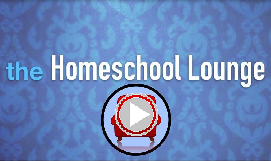







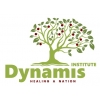
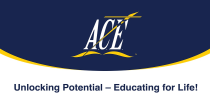

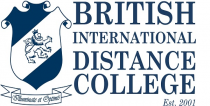

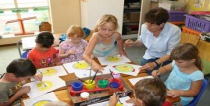



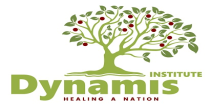

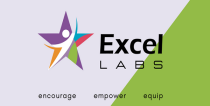



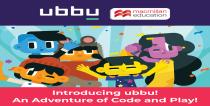





Comments 2
Shortly after the policy of the WCED was withdrawn, Ms. Cheryllyn Dudley (MP of ACDP) wrote a letter to the Department of Basic Education, on 21 February, with 18 questions on how the DBE views home education and why the DBE wants to regulate home education.
Reply dated 13 March from mr. PB Soobrayan from the Department of Education to the letter of the ACDP in which none of the 18 questions of Ms. Dudley have been answered.